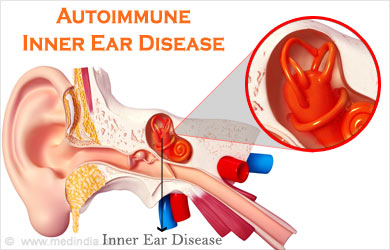
05
Jan
Inner Ear & Diseases Related To It
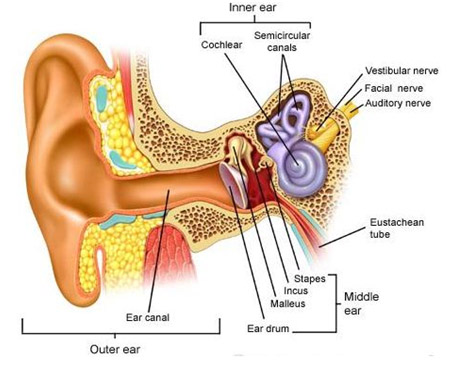
Vertigo
- Vertigo is when a person feels like they are moving when they are not.
- Often it feels like a spinning or swaying movement.
- There may be associated nausea, vomiting, sweating, or difficulties walking.
- It is typically worsened when the head is moved.
- Vertigo is the most common type of dizziness
- The most common diseases that result in vertigo are benign paroxysmal positional vertigo, Ménière’s disease, and labyrinthitis.
- Less common causes include stroke, brain tumors, brain injury, multiple sclerosis, and migraine.
Symptoms:
- Vertigo is a sensation of spinning while stationary.
- It is commonly associated with nausea or vomiting.
- Blurred vision.
- Difficulty in speaking.
- Hearing loss may also occur.

Benign paroxysmal positional vertigo
- Benign paroxysmal positional vertigo (BPPV) is a disorder arising in the inner ear.
- Its symptoms are repeated episodes of positional vertigo, that is, of a spinning sensation caused by changes in the position of the head.
- BPPV is the most common cause of the symptoms of vertigo
Symptoms
- Emesis (vomiting) is common, depending on the strength of the vertigo itself and the causes for this illness.
- Nausea is often associated.
- Paroxysmal — a sudden attack or increase of symptoms of a disease (such as pain, coughing, shaking, etc.) that often occurs again and again
- Fainting
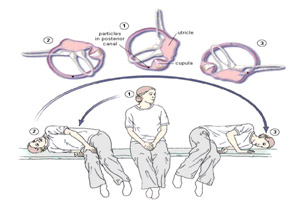
Labyrinthine fistula
- A labyrinthine fistula is an abnormal opening in the bony capsule of the inner ear, resulting in leakage of the perilymph(the fluid between the membraneous labyrinth of the ear and the bones which encloses it.) from the semicircular canals into the middle ear.
Symptoms
- Dizziness
- Imbalance
- Hearing loss
- Vertigo (an illusion of motion) is not common in this disorder.
- Rapid increases of intracranial pressure can also result in a PLF.
Labyrinthitis
- Labyrinthitis is an inner ear disorder.
- The two vestibular nerves in your inner ear send your brain information about your spatial navigation and balance control.
- When one of these nerves becomes inflamed, it creates a condition known as labyrinthitis.
Symptoms
- Vertigo.
- Nausea
- Anxiety
- Loss of hearing
- Ill feelings are common due to the distorted balance signals that the brain receives from the inner ear.
- Viruses
- loss of balance
- tinnitus, which is characterized by a ringing or buzzing in your ear
- difficulty focusing your eyes
Ménière’s disease
- Menière’s disease is a disorder of the inner ear that can affect hearing and balance.
- It is characterized by episodes of vertigo, tinnitus, and hearing loss.
- The hearing loss comes and goes for some time, alternating between ears, then becomes permanent.
Symptoms
- Vertigo (attacks can last anywhere from a few minutes to 24 hours)
- Unilateral or bilateral tinnitus.
- A feeling of fullness in the affected ear.
- Unilateral (in one ear) or bilateral (in both ears) hearing los
- Loss of balance.
- Nausea, vomiting, and sweating caused by severe vertigo.
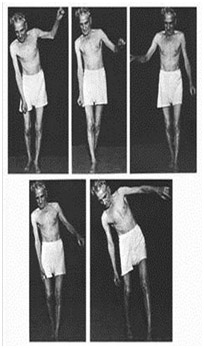
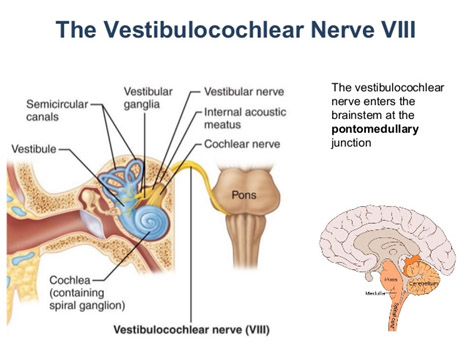
TUMOUR OF THE INNER EAR
Acoustic Neuroma
- Acoustic neuroma is a noncancerous growth that develops on the eighth cranial nerve.
- Also known as the vestibulocochlear nerve, it connects the inner ear with the brain and has two different parts.
- One part is involved in transmitting sound; the other helps send balance information from the inner ear to the brain.
- Acoustic neuromas — sometimes called vestibular schwannomas.Usually grow slowly over a period of years.
Symptoms
- Problems with balance
- Vertigo (feeling like the world is spinning)
- Facial numbness and tingling, which may be constant or come and go
- Facial weakness
- Taste changes
- Difficulty swallowing and hoarseness
- Headaches
- Clumsiness or unsteadiness


Recent Comments